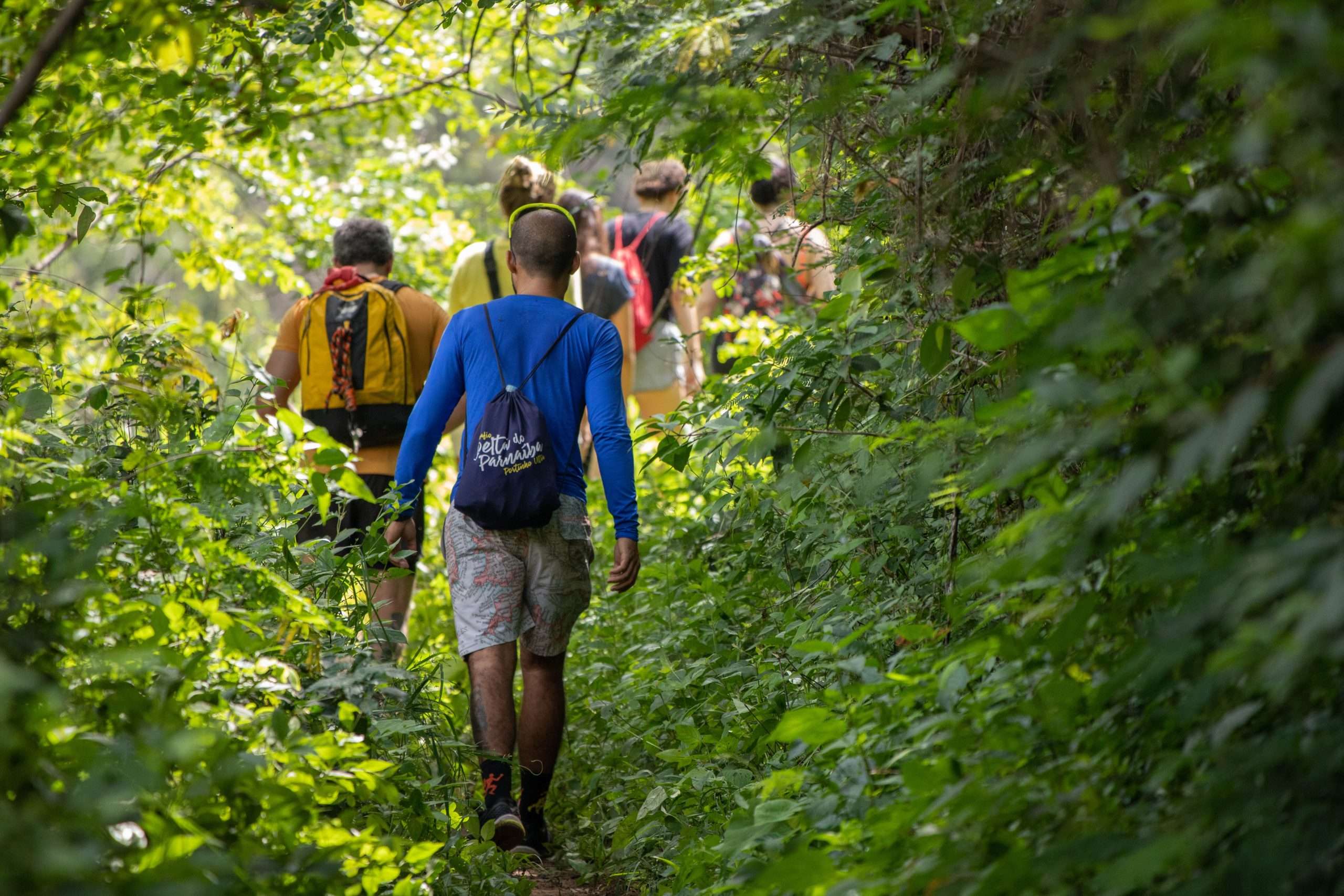Contact with nature is paramount to human well-being across various domains. Spending time in nature, or mingling with a natural element has tremendous effects on physical, mental, social and spiritual wellness. Apart from the advantages, the deprivation of nature has growing global concerns such as obesity, cardiovascular diseases, mental health disorders, stress, reduced immunity, rise in crime, etc (Jimenez et al., 2021, Wood et al., 2016, Sudimac, Sale, & Kuhn, 2022, Chae et al., 2021). The adverse impacts are evident in children as well (Engemann et al., 2019).
These threaten the health of humans and the environment. This further adds burden on achieving the Sustainability Development Goals (SDGs). Therefore, it is essential that governments, organisations, and policymakers work towards building smart green cities based on scientific research. Similarly, families, teachers and individuals can focus on limiting screen time and consciously spending time in nature. This will foster pro-environmental, pro-social, and pro-consumer behaviours, and a sense of well-being among humans-especially children (DeVille et al., 2021).

Source: https://www.pexels.com/
Contact with nature
Contact with nature happens when humans experience natural elements or are present in a natural environment. These connections can be varied depending on location, and can encompass things like walking through rainforests, taking a moment to wonder at the flora and fauna around you, picking fruits or mushrooms, horse-riding, cloud watching and birdwatching. Being by the sea can also help humans connect with nature, so walking and cycling on the beach, swimming in the sea, surfing, and boating can be beneficial.
More specifically, children should enjoy themselves in nature by staying active, playing in sand or soil, and playing with dried and fallen leaves. Simple things like playing games and climbing over tree stumps and logs helps them build their own imaginative play and problem-solving skills.

Source: https://www.pexels.com/
how contact with nature supports well-being in all forms
Contact with nature has tremendous benefits for human health. Studies have documented the immense physical, mental, social and spiritual benefits of being surrounded by or exposed to nature. Furthermore, contact with nature offers relief from demanding regular schedules and stresses (Packer, 2021). Virtual contact with nature through movies or virtual reality can imitate a similar response.
Enhanced Physical Well-Being
Contact with nature in safe settings has several physical health benefits. It renews physical energy and promotes quicker physical recovery, resulting in healthier cholesterol levels. According to research, nature also aids in coping with pain. Furthermore, studies indicate that contact with nature boosts physical activity, while reducing the possibility of cardiovascular illnesses and chronic diseases (Jimenez et al., 2021). Being in contact with nature decreases blood pressure, heart rate, and muscle stiffness caused by unpleasant surroundings. It may even lessen mortality, according to scientists (James, Hart, Banay, & Laden, 2016).
A natural environment, where an individual has plenty of exposure to the sun, helps the body to absorb more vitamin D, which is critical to fighting cancer, osteoporosis, and heart attacks. A naturally blue environment can also lessen obesity induced by physical inactivity and mental health disorders (Wood et al., 2016). It was estimated that the health advantage of involvement in the marine surroundings in England was at £176 million in 2016 (Papathanasopoulou et al., 2016). Concurrently, being in elevated natural surroundings accelerates metabolism and suppresses hunger.

Source: https://www.pexels.com/
According to research, screen time is linked to an increased risk of death, regardless of physical activity. It seems that spending time outdoors exposes us to cleaner air with less pollution when compared to indoors. This reduces the risk of respiratory concerns including allergies and asthma. Similarly, natural surroundings with sunlight exposure helps regulate the circadian rhythm, to increase sleep quality.
Contact With Nature Provides Better Immunity
According to a Japanese research study, walking in the forest, (or “forest bathing“), improves immunity (Chae et al., 2021). It is suggested that the increased Natural Killer cells in the immune system (which combats tumours and infections) could be a result of inhaled aerosols from the woodlands during a walk (Li et al., 2007). Another study signified that females who spent six hours over two days in the forest improved their white blood cells that combat viruses, which persisted for a week (Li et al., 2008). Contact with nature helps safe microorganisms in the environment enter the human body and build immunity to resist harmful infections- similar to vaccines (Rook, 2013). Similarly, nearness to the sea boosts vitamin D levels.

Source: https://www.pexels.com/
The Antidote To Stress and Mental Health Concerns
Contact with nature eases the level of stress hormones. It lowers the stimulation of the nervous system, by decreasing amygdala activity (Sudimac, Sale, & Kuhn, 2022). A study conducted on the effects of amygdala activity after one hour’s walk on a natural route (as opposed to an urban route), proved that exposure to nature lessened the amygdala activity, while urban exposure had no effect (Sudimac, Sale, & Kuhn, 2022).
The quantification of cortisol levels has shown reduced stress in natural environments. They lower anxiety and improve mood. Contact with nature lessens anger and exhaustion, improving happiness. It also minimises signs of depression in adults (Balanzá-Martínez & Cervera-Martínez, 2022), further fostering a meaningful purpose in life and vitality.
Contact With Nature Fosters Reflection and a Sense of Belonging
A study based on the gardening experiences of psychiatric inpatients revealed that this hands-on activity helped patients to reflect on their illnesses (Pieters et al., 2018). This contact with nature and sensory stimulation fostered pro-social conduct (Pieters et al., 2018). It also further nurtured a sense of belonging, communal spirit, joint goal, and reduced loneliness (Pieters et al., 2018).

Source: https://unsplash.com/
Stronger Social Connections and Minimal Crime Rates
There is significant evidence to support the notion that the time spent in the natural environment is associated with one’s interpretation of a close-knit and united community. There is also evidence of closeness to nature and its positive effects on social connections and personal well-being, nurturing a sense of belonging. In turn, this elicits contributing to society through better productivity and prosocial behaviour.
This suggests that the incidence of crime is lower in areas where there is more nature in one’s surroundings. Similarly, violence and aggression between intimate partners is reduced, and human coping capacity with stress is better. This was scientifically proven by measuring brain activity. The evidence revealed that when natural views were observed, brain sections connected to empathy and love lit up. Meanwhile, urban views lit up sections in the brain associated with fear and anxiety. So, contact with nature enhances social cooperation and generosity.
Contact With Nature Improves the Health of Children
Screen time of more than two hours a day can have major concerns for children. This includes but is not limited to obesity, and disturbed sleep. Excessive screen time also links to behavioural issues, propensity for violence, low academic achievement, and diminished creativity, according to research. Conversely, access to view green scenery from home encourages self-control behaviours in children, as per one study (Schertz & Berman, 2019). Contact with nature also enhances self-esteem, and a sense of well-being (Malberg Dyg & Wistoft, 2018).
Scientific research has shown that children who spent time outside in nature on their school break had less probability of developing near-sightedness compared to their peers (Huang et al., 2020). Also, exposure to nature improves cognitive function. Green areas close to schools stimulate cognitive improvement in children as per a study (Schertz & Berman, 2019). This study denoted that contact with nature improves memory too (Schertz & Berman, 2019).
Research shows that children who grew up in greener localities had lower chances of various psychiatric disorders in adulthood (Engemann et al., 2019). Simultaneously, the mental healing effect of water is an additional benefit of blue spaces, and includes aquatic environments such as oceans, waterfalls, lakes, etc. Contact with nature also heals children exposed to traumatic experiences and has a therapeutic effect on them. Further, it lowers the symptoms exhibited by children with attention deficit and hyperactivity disorder (ADHD) (Carmine & Berto, 2020).

Source: https://unsplash.com/
Spiritual Awakening
Contact with nature spiritually helps amend psychological worries and pushes humans to stay grounded in their reality. Furthermore, establishing a connection with nature is essential to mindfully observing and embracing the plants, flowers, and creatures in one’s surroundings. In turn, this reawakens humans as part of nature, the ecosystem, and Earth, reminding us of the duty of humanity to protect the environment, with a sense of attachment to all other life forms.
Furthermore, nature rekindles the association among humans, which is a great tool for embracing spirituality. Nature opens the mind to accept new perspectives and attain a fulfilled life. Contact with nature heals, and refreshes the human soul and brings it closer to the divine.

Source: https://unsplash.com/
why Is Contact With Nature so Important?
Contact with nature develops human empathy and teaches us to respect animals and the environment. It creates a sense of awareness and understanding of the purpose of natural elements like our source of food, etc. It also offers an opportunity to be involved, and be stimulated by nature– to be peaceful, without craving endless entertainment. The weekly average screen time of children is about 44 hours, while daily outdoor play time doesn’t even amount to 10 minutes. This is a serious concern as shown by scientific research as it elevates depression, and promotes a lacking of empathy and altruism.
Being surrounded by nature reinstates our attention, which can otherwise lead to mental exhaustion, as per Attention Restoration Theory. According to this theory, people can pay attention more widely and easily in natural settings, as opposed to busy and strenuous urban settings that may need intense attention. As a result, the human body and mind were much more relaxed in natural surroundings, reviving the mind.
In addition, this process lifts our sense of well-being. Concurrently, natural environments relieve stress, according to Stress Reduction Theory. These safe, natural settings are conducive to our ancestors‘ survival, fulfilling their basic needs where food, shelter and reproduction were concerned. Consequently, we display positive responses to these atmospheres due to evolution. These global concerns underpinned by scientific facts are highly relevant when pursuing the UN’s 17 Sustainable Development Goals (SDGs)
achieving the United Nations Sustainability Development Goals (SDGs)
Contact with nature connects humans, allowing them to attempt to protect the environment and the planet. This is fundamental to achieving the UN’s 17 Sustainable Development Goals (SDGs). As discussed, contact with nature has massive health benefits, directly supporting SDG3: good health and well-being. Furthermore, it promotes pro-consumer behaviours (SDG 12), and pro-social behaviours, reducing crime and violence.
Combatting Biodiversity Loss and Mitigating Climate Change
Deforestation, over-exploitation of wildlife and marine species, pollution, and forest degradation have become significant drivers of biodiversity loss. Conversely, pro-environmental behaviours and attitudes develop through exposure to nature (DeVille et al., 2021). This is critical to combat biodiversity loss (SDGs 14&15) and climate change (SDG 13).
At the same time, regular access to safe, natural places is dependent on cultural identity, economic status, and geographic location, for a large number of children. This acts as a barrier to equitable access to natural spaces where kids can learn, play and grow (SDG4). In this regard, the coast is the most socially levelling environment with fair admission to all socioeconomic groups.

Source: https://www.pexels.com/
Given the health benefits of coastal environments, it is important to preserve these natural surroundings from sea level increases and weather catastrophes due to climate change. Coastal communities can be economically deprived, and dependent on seaside activities for survival (SDG8). Lost employment opportunities can lead to poverty and hunger (SDGs 1&2). This will further deepen the inequalities within society for marginalised groups (SDG10).
In future, smart cities with green and blue spaces, using innovation and technology are pivotal (SDGs 9&11). This is fundamental in managing the growing urban populations, and preserving the advantages of being in contact with nature.
Moving Forward
Urban cities are focusing on incorporating and improving parks. Buildings such as schools and offices are increasingly structured to feature big windows, and with accessibility to green and blue spaces. Smart and innovative design using science and technology can assist in this transformation. Likewise, encouraging contact with virtual natural settings is also a valuable tool in urban areas with limited access to nature. Exhibiting photographs and moving clips of natural colours and designs, fixing living green walls, or positioning potted plants in internal spaces, are some such examples.

Source: https://www.pexels.com/
In conclusion, contact with nature in urban green spaces for psychological rejuvenation can be constrained by some aspects (Macaulay, Lee, Johnson, & Williams, 2022). These may include one’s perception of nature, quality of design, traffic and urban noise (Macaulay, Lee, Johnson, & Williams, 2022). Yet, mindful engagement can be an effective mitigation mechanism for factors like diminished captivation (Macaulay, Lee, Johnson, & Williams, 2022).
THRIVE Framework
THRIVE invests interest in safeguarding human well-being in all domains. It strongly supports the importance of contact with nature for humanity as well as our planet. To learn more about how The THRIVE Project is researching, educating and advocating for a future beyond sustainability, visit our website. You can follow our informative blog and podcast series and learn about our regular live webinars featuring expert guests in the field. Sign up for our newsletter for regular updates.























